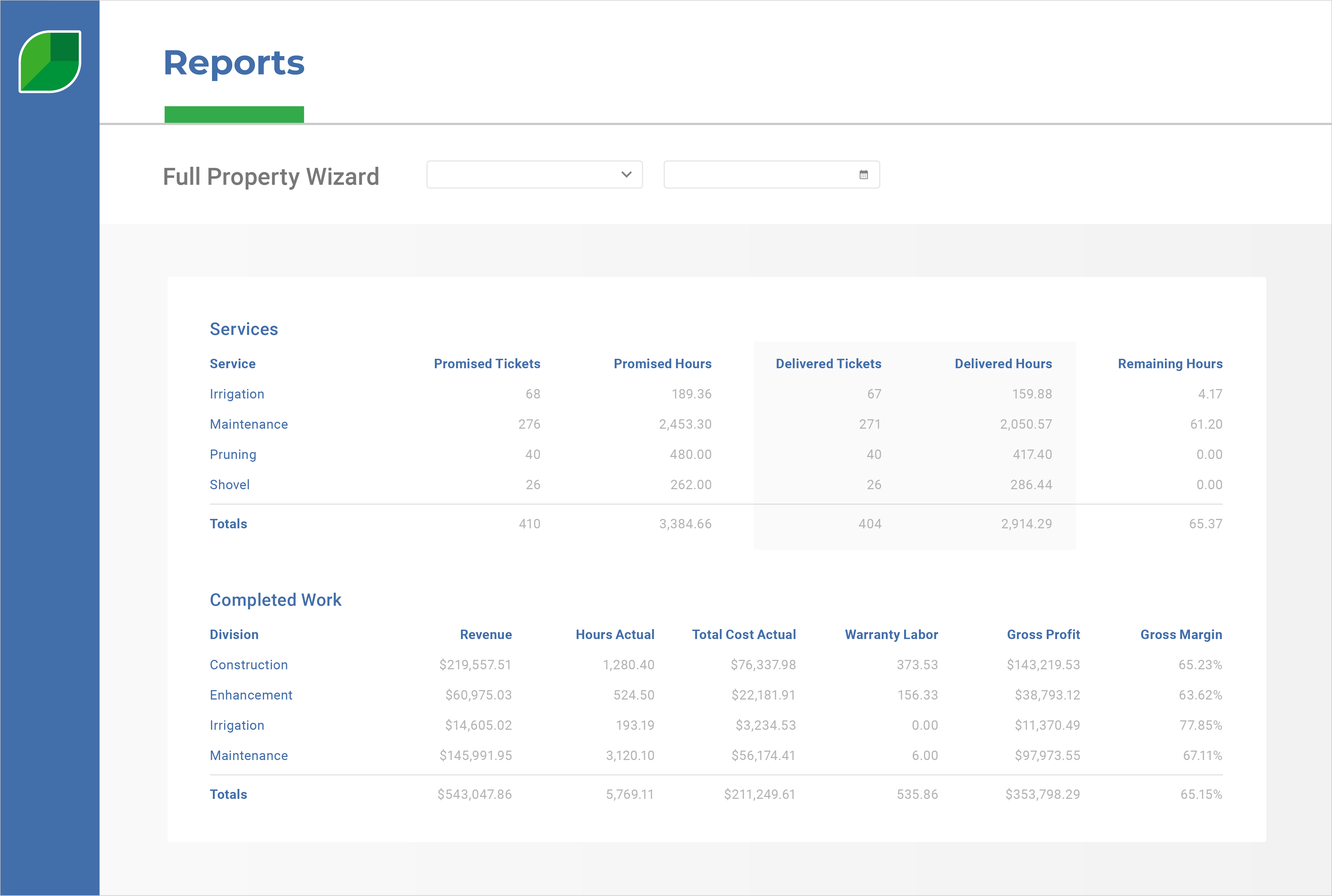Potential customers may express reservations about the costs of professional landscaping services or harbor a "do-it-yourself" mindset. In such situations, your team's ability to effectively address and overcome these objections can be the deciding factor in securing the sale or losing the opportunity.
Developing persuasive counterpoints and clearly articulating your services' value is crucial for converting hesitant prospects into satisfied clients.
→ Think of objections as opportunities rather than roadblocks.
Whether you're a seasoned landscaper or new to the industry, mastering sales calls can elevate your company’s success and lead to greater business growth.
Continue reading to discover the secrets to closing deals when faced with the most common sales objections.
Addressing the 6 most common objections
Sales professionals encounter many forms of pushback from potential customers. Knowing how to navigate these issues helps your business book more jobs, grow revenue, and build customer trust and loyalty.
Follow these tips for overcoming common objections.
1. Cost concerns
Objection: “It’s too expensive. I can’t afford it.”
Price objections are the most common objections sales teams must overcome in any field service industry.
Customers may have cost concerns for various reasons. For instance, they may not have enough to pay for the project in full, or they may not believe the return will be worth the investment.
Ask questions to get to the root of the customer’s concerns. If it’s due to budget constraints, offer financing or flexible payment terms that allow the customer to pay for the work in installments.
If the customer believes the price doesn’t match the perceived value, explain how completing the project now can save money by preventing expensive maintenance and service calls in the future, mention how the project improves curb appeal and adds value to the home, and walk the customer through the factors that justify the price.
2. DIY mentality
Objection: “I can do this myself.”
All landscaping professionals deal with customers who believe they can complete the project without professional help because they:
Don’t want to spend money on the project
Overestimate their abilities
Believe they have the same expertise as a professional landscaper
To overcome the objection, educate clients about the benefits of hiring professionals, such as:
Saving time
Achieving higher-quality results
Avoiding costly mistakes and rework due to human error
For more expansive projects, mention the specialized tools and equipment needed for the job, as most homeowners don’t have a backhoe or plate compactor sitting in the garage.
3. Timing issues
Objection: “I’m worried the project will take a long time or face too many delays.”
Timing objections are common when customers lead busy lives and want to complete projects promptly. Believing a project will face delays or take too long to complete may cause landscaping customers to resist the sales pitch.
→ Clear and timely communication at every project phase helps manage client expectations.
If your business uses landscaping software, explain how it enables real-time communication, optimizes scheduling and drive time, and streamlines processes so landscaping techs have more time to execute projects.
4. Concern about maintenance
Objection: “I’m worried I won’t have time for maintenance and upkeep.”
Concern about ongoing maintenance occurs when customers worry they’ll forget to water plants or mow their lawns regularly.
→ Mention available landscaping or lawn care maintenance plans to overcome this objection on a sales call.
These plans enable customers to schedule multiple service visits in advance, ensuring they receive regular upkeep. Maintenance contracts provide a consistent revenue stream and help to build customer relationships.
Some homeowners want to take on maintenance responsibilities, so sales reps should educate the customer about ongoing maintenance and provide helpful tips for easy upkeep. They may realize it doesn’t require much work and decide to proceed with the project.
5. Aesthetic preferences
Objection: “I was hoping to place the garden bed next to my patio, not where you recommended, and I don’t like the type of tree you suggested.”
You can often accommodate the customer’s ideas. But in some situations, their ideas won’t work.
Maybe you can’t build a garden bed in a specific area because it’s next to underground utility lines, or the customer wants to plant a tree that requires full sun, but their property receives full shade.
When salespeople clearly explain their recommendations and work collaboratively with the customer to understand their pain points, they can offer a creative solution to balance aesthetics and functionality.
6. Doubts about expertise
Objection: “I’m worried you don’t have the skills or experience to complete my project.”
Landscaping projects are a significant investment, and some customers will question your ability to complete the job.
→ Address these objections by highlighting qualifications, applicable licenses and certifications, and testimonials to build rapport and address the prospect’s concerns.
Direct customers to your online reviews and share success stories and case studies to demonstrate your expertise and reliability in delivering exceptional landscaping solutions.
If you continue to receive push-back, ask qualifying questions to determine if the customer is the right fit for your landscaping business.
Next, let’s review some tips for handling sales objections to increase sales conversions.
Best practices for dealing with landscaping sales objections
Overcoming landscaping sales objections improves sales performance and customer satisfaction.
Include the following best practices in your sales training and ensure they become part of the sales process.
Listen actively
Active listening is a communication technique that involves paying close attention to both verbal and nonverbal cues, showing empathy, asking follow-up questions, and providing feedback to ensure mutual understanding.
When talking with a customer, active listening gives your team an in-depth understanding of customer needs and concerns.
Ask open-ended questions so the customer can genuinely articulate their feelings or their objections to your landscaping proposal.
Show empathy
Salespeople who lack empathy can struggle to overcome objections during a call. Showing empathy and compassion lets customers know you understand their point of view.
Active listening and sharing relatable personal experiences can help let customers know they’re not just a dollar amount to your business but that you value and understand their point of view.
Customize solutions
Again, active listening can help you understand the customer’s objection. With this information, you can customize your proposal to better suit their needs.
Although the customer may lack the funds to pay for the project in full, they may happily sign the contract if you offer financing or monthly payments.
Rather than providing a rigid solution with no room for customization, adapt your proposal to match the customer’s needs more closely and simplify the decision-making process.
Address objections proactively
While you can’t read minds, you can anticipate objections and devise solutions that will resonate by bringing an in-depth knowledge of your customers and your market to every call.
For example, if specific trees or plants don’t thrive in your area, provide customers with a list of native plants.
By nipping these objections in the bud, you can improve the chances of making the sale.
Stay calm and professional
Your employees will certainly encounter objections at some point in the sales cycle. How they handle themselves will make or break the deal.
Teach your sales team to stay calm under pressure with deep breathing exercises and active listening to reframe objections as opportunities for dialogue. When your team shows empathy when handling customer concerns, they’ll be able to maintain a positive attitude throughout the sales process.
Ultimately, a lack of composure and professionalism will be the final nail in the coffin if a customer feels apprehensive about working with you, which can cause the business to fail.

Learn more about running a successful landscaping business
Understanding your customers’ needs and knowing different strategies for handling objections can make all the difference between stagnant sales and record revenue. Make sure your sales team practices how to overcome sales objections and continuously perfects these necessary skills.
Leveraging landscaping software, such as Aspire, provides your team with powerful tools to enhance the sales process further, from the ability to build professional proposals in the field to managing customer relations throughout the sales cycle.
Visit the rest of the Aspire blog for additional advice on growing a successful landscaping company, including marketing tips and strategies for acquiring commercial landscaping contracts.



![Landscaping Business Due Diligence: Complete Guide [2025] Landscaping Business Due Diligence: Complete Guide [2025]](http://images.ctfassets.net/3cnw7q4l5405/6FhiPCf8mCcAawEddWnUXm/69ff3b97b13c1f0ca6f6d956adc2dd07/Landscaping_business_due_diligence__complete__guide_-2025-.png)
![How to Hire a Bookkeeper for Landscapers: Full Guide [2026] How to Hire a Bookkeeper for Landscapers: Full Guide [2026]](http://images.ctfassets.net/3cnw7q4l5405/5AbVDtokUcXVBR3HYotDM8/dcafa256d702a0e2a4fa432e9de43fb7/How_to_hire_a_bookkeeper_for_landscapers.png)


